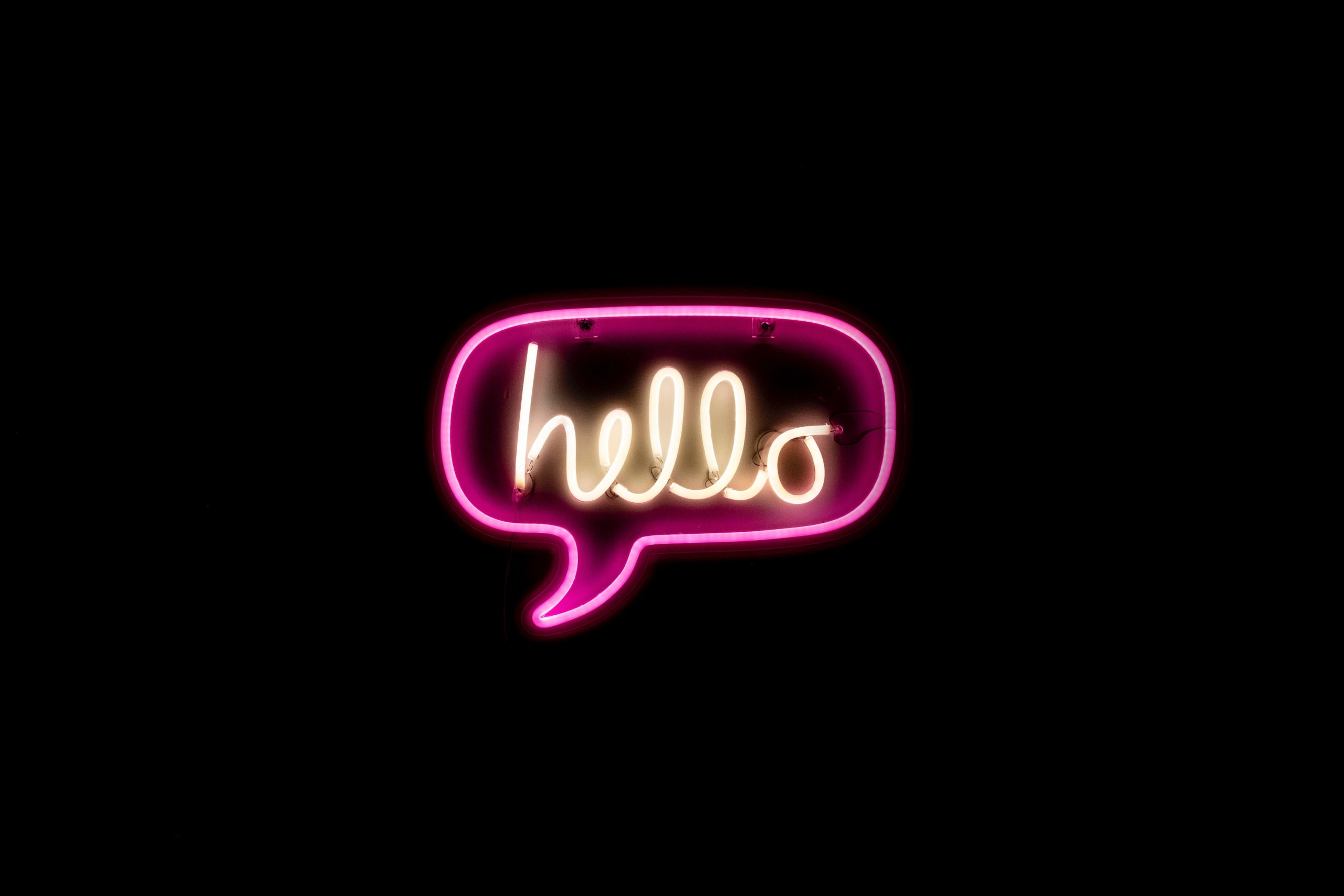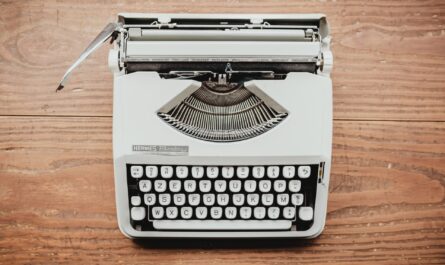This is the second in a series on using the internet as a learning device. You can read part one here and part three here.
We are looking at the best practices for using the Internet for research. Think of the internet as a library; it houses information on every topic you can imagine. It can point you to the best resources on Earth for information or link you to an authority on whichever topics capture your imagination.
The Internet as a Library
This massive library, a place where “reading materials are systematically arranged,” represents the whole of human knowledge, and sits accessible day and night. It can jump-start your research, narrow down sources, challenge your ideas on your topic and questions, and yield a ton of information very easily. In the words of Noam Chomsky, it’s invaluable as a research tool.
However, because the Internet isn’t regulated, anyone can post anything, regardless of it’s accuracy. There is no committee tasked with making sure the internet is a safe and truthful place; we are truly still in the Wild West days of internet usage. You need to develop an incredibly skeptical approach to claims or ideas you discover, and a process to determine their accuracy, to see through bias – the author’s and your own – to separate fact from opinion.
A few questions to start with:
- Is the owner or author’s name and contact information available?
- What kind of sources do they use, and are their conclusions reasonable based on the information presented?
- What sort of proof or references do their posts offer?
- Do they link to research or original documents, to news releases or other blogs?
- Do they link to other pages or offer proof at all?
Then, a few tips to keep in mind while looking for information online:
Be cautious and find out information about the author and their background or qualifications, as well as look at the information they link to or reference in their work. Verify their claims and sources back to the original source or document. You want to be confident in the reliability of a writer’s work.
Don’t make the mistake of thinking breaking news is better. It takes time for details and facts to be validated and a clear picture to emerge. Often, informing yourself with older, established aspects of the subject will equip you to process the newer and more detailed articles and reading you do later.
It’s worth looking at whether the website is updated and links are not broken, so you’re aware that facts or research found there may be out of date. However, not every website needs to be recently written to be accurate, especially when dealing with older, historical figures and facts. I’ve found hobby websites and posts on explorers and other figures through history which were written years ago to be full of facts and quotes which didn’t make it into the summaries on the person. They were simply written in 2012, instead of this year. However, do rigorously check the claims and facts on these older posts and sites.
Keep in mind the role bias can play in writing and reading research. Bias leads us to only seek out news or facts which bolster our beliefs. When doing research, we want to find information which challenges those beliefs, to test them for accuracy.
Most importantly, search with the end in mind. Consider the purpose of your research, as this will dictate the nature of sources to look for. If you’re doing research to come up with ideas, perhaps reading through blogs and websites will supply creative ideas. If you are writing for an academic audience, scholarly articles and peer-reviewed sources would provide a firm foundation for your paper. If you want to know the latest discoveries in current research on a specific topic, news releases and publications will likely point you in the right direction. Sources become more or less convincing depending on your goals.
Wikipedia
As I’ve shared in a couple editions of Five for Friday, Wikipedia has significantly improved its quality and the veracity of its sources since its beginnings in 2001. Once a joke among students, and blacklisted by instructors, the “free encyclopedia” has all but reinvented itself. Now, its summaries often inform the search results in the sidebars of internet browsers, and more likely than not, the top search results lead to Wikipedia.
Where once Wikipedia pages were primarily opinion and often false or misleading, now entries are vetted and continually improved. Behind the webpages, a team of over 130,000 monthly editors work to clean up grammar, flag when a source needs to be cited, and discuss the intricacies of perceived bias and opinion.
This increase in standards has positioned Wikipedia to become a serious rival to other databases, like the Encyclopedia Britannica website. Where the Encyclopedia Britannica articles have historically been written by celebrated academics or leaders in their fields, including Nobel laureates and former presidents, Wikipedia allows anyone to edit and contribute. This has been the source of much hesitancy, and in part, contributed to the ribbing visited upon anyone seriously citing Wikipedia in conversation. If anyone can write what they want, how can anything be trusted?
The website requires rigorous validation and quality sources to be cited. There are discussions about bias, opinion, and diversity of experience. This also allows for more people, more debate, and ultimately more consensus on a topic. Britannica have paid their contributors, attracting talent, but therein limiting the number of participants and entries. Wikipedia, with their millions of registered volunteers, attracts writers and researchers because they care about the topic at hand. Perhaps this passion for knowledge is what has allowed Wikipedia to succeed.
Wikipedia is also the more extensive source to start with when researching living people. Wikipedia has made this their calling card, over the years, with updates happening seemingly instantaneously. The Wikipedia article on Elon Musk, for instance, currently sits at over 11,000 words, while the Britannica listing is just over 900 words, though, to be fair they do link to related articles about his businesses.
I’ve found the single most useful feature of Wikipedia to be the “Further Reading” section at the bottom of most entries. This lists books, videos, articles, and other vetted sources on the topic, often from which the entry has been compiled. After familiarizing myself with a summary of the person or idea, I click on this section. It is a wealth of information, listing out biographies, documents available online, and other quality source material which you can then explore and learn from yourself. For example, in my recent research on Marshall McLuhan, I discovered that his family maintains an extensive website with quotes, notable appearances or references to his work, and a full biography and bibliography. I was able to find several quality books and webpages from the single Further Reading one section on McLuhan’s Wikipedia page.
Other Websites
For any topic you can list, there is a blog about it. Blogs and other personal websites can also be very helpful, particularly when they list or link to their source material. Not all websites link to source material; many simply quote other stories without bothering to verify any further. When you are looking for accurate information, you’ll need to take on this work yourself, finding the actual book, study, or interview to which the article is referring. Don’t be content with the fact that everyone else seems to think it’s legitimate; do the work to know for certain that the information is valid.
Encyclopedia Britainnica is a great resource for historical research in particular. The Encyclopedia website is written by professionals, which adds a bit of weight to their articles. Those former Presidents and globally respected leaders write extensively about their interest and sources, which provides the reader with a long list of references to explore.
Scholarly sources are also a great place to gather information. Depending on your topic and the purpose of your research, you may want to focus primarily on these sources. Google Scholar searches through academic articles. The drawback here is that Google searches the entire document, rather than only the abstracts, which may or may not be available to you to view online. You may also need to pay to access the research returned in a search. Many of these studies are rather pricey, averaging $25 for a copy of a single study. If you are a student, most likely your institution has access to many of these databases already. Otherwise, I would recommend going through your public library, and asking which databases they have access to. In either case, ask your librarian and they’ll know how to help you gain access.
Google Scholar allows you to refine with Boolean terms, or within a certain time range. This is great for when you are looking for particularly newer research. Their search results also show how many times a particular study has been referenced, and include links to other articles which cite the original study. This is a great place to discover studies on related topics.
JSTOR is an academic library, which hosts books, journals, and other scholarly material. Their search system is more similar to a database search. You can use quotations to search for exact phrases, which will help return more exact results.
For philosophy, and many psychology theories and figures, the Stanford Encyclopedia of Philosophy is an amazing source of scholarly essays on nearly every topic imaginable. They have biographies, thorough examinations of theories and implications of philosophical ideas, and helpful summaries of every major school of philosophy and philosopher.
Other resources to look at are the websites of the Library of Congress and National Archives. Many philosophers, authors, and historical figures have inspired dedicated websites, or even societies, which can also be rich sources of information.
Online courses and podcasts are also great options for learning and finding interesting ideas; they are just more likely take more time. If you want to take a deep dive into a particular topic or find more sources, you could look into a course. I don’t usually use these sources, though, unless I have weeks to devote to the topic.
YouTube
A more recent discovery for me is lectures on YouTube. The platform has information on just about any topic you could imagine; there are lectures from JRR Tolkien on his Middle Earth epics; obscure history videos sharing lesser known details about historical events; you can hear lectures given by modern thinkers. There are also videos on art history, famous speeches, and any hobby you can think of. Rather than being a platform where we waste time, YouTube can actually be a great source of learning material and research. Recently, I’ve listened to several lectures and debates from Marshall McLuhan, a Canadian philosopher and professor in the 1960s and 70s. His work dealt with the impact of information and media on society and many of his lectures and interviews on YouTube, aren’t available in text or other mediums.
When you look for a video, you’ll want to be specific in your search terms, and look for videos from universities, legitimate organizations, or the estate of author’s (as in the case of Tolkien or McLuhan, for example). You’ll probably also want find a video around twenty minutes; long enough to cover an overview, but not so short you don’t gain any context or information. A great video will also list sources or further study suggestions in the video description for you to continue your research.
Discovering Books
The internet is also unparalleled in discovering books, particularly those which are obscure or older. Books are amazing for research because of the amount of concentrated information they contain. The underrated index and reference sections are gold-mines for finding more books on your topic of interest. Read the index and reference sections of books you enjoyed, or on topics you want to explore more. Go through the bibliography and write down the titles of a couple books to look up and read.
A habit I am working to develop is looking through the reference section of books as I finish them, and choosing at least one title to read next. Every book is written from an amalgamation of the author’s references and experiences, often in the form of dozens of books. While each and every title of inspiration may not be listed, the author will take great care to acknowledge the sources of the material which directly made it into the book. Every piece of writing is the result of cutting out and removing other ideas, references, and information – some of which will interest you. By continuing your reading in related books, you are building a more complete understanding of the topic at hand and how it fits into the larger context of society.
So far as choosing books, I first tend to look at how many times a title is referenced. After getting titles from the bibliography of a book, I’ll usually do an internet search on the topic, then go to Wikipedia to see the references and further reading recommendations.
If the same author’s name keeps popping up, that should indicate to you that their text is widely read and accepted. If Wikipedia lists a title, and that same title has been referenced in a book I’ve read, I usually go to Amazon to look it up. On Amazon, I first look for reported issues concerning the quality of certain editions. I’ll also look to see whether the work has mixed reviews. I’m not looking for high reviews so much as discussion or differing opinions. I tend to gravitate toward ideas with are older and maybe discussed a bit less, in order to widen my perspective on a topic. Reading through the reviews can usually give you an idea of whether their ideas are popular today or not.
There are of course many out of print books and primary sources which exist only in analog form. The internet, particularly Google Scholar, can help to narrow down the topics and ideas presented in these older books.
Round ups of books on specific topics can also be very helpful. Take a general topic, such as “media history” and do an internet search for the best books on media history. From there you can refine, perhaps you want to look closer at yellow journalism and muckraking in the early 20th century. Perhpas you are more interested in the digital revolution’s effects on journalism. Start out general, then use authors names and more specific topics to whittle down the results until you are left with a manageable number of sources.
Get Specific
The internet is the greatest resource mankind’s knowledge has produced. With a simple internet search, you have access to the wisdom of history – from Plato’s cave allegory, detailed and put into striking video – to NASA’s documentation of 1969’s mission to the moon and everything in between. There is no single resource as detailed, and capable of high quality as the internet. However, mixed in with these extraordinary creations and accounts of genius, there are a lot of duds; a lot of mediocre information exists.
No matter how specific your topic is, there are thousands of resources available. The internet is simply too large to function well under general terms. In order to find high quality information, we need to get specific. The internet rewards specific interests.
Putting It Together
While all of these resources are great starting places, they are only that – a place to start. Developing a deep understanding of a subject requires effort and quality material. Note the ideas and titles in your commonplace book, along with your takeaways. When you come across a name or new term, do an internet search and go to the Wikipedia page. Read the summary at the top, and jump to what stands out or lines up with your original reason for the search. Allow your curiosity to lead you to surprising places, and always verify that your sources are reliable. Keep in mind the purpose of your research, whether for deeper personal understanding, an academic presentation, or to familiarize yourself with new ideas. Take your responsibility toward your education seriously, and keep asking questions.




